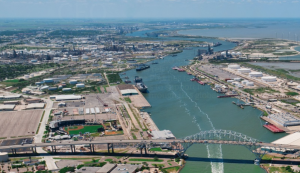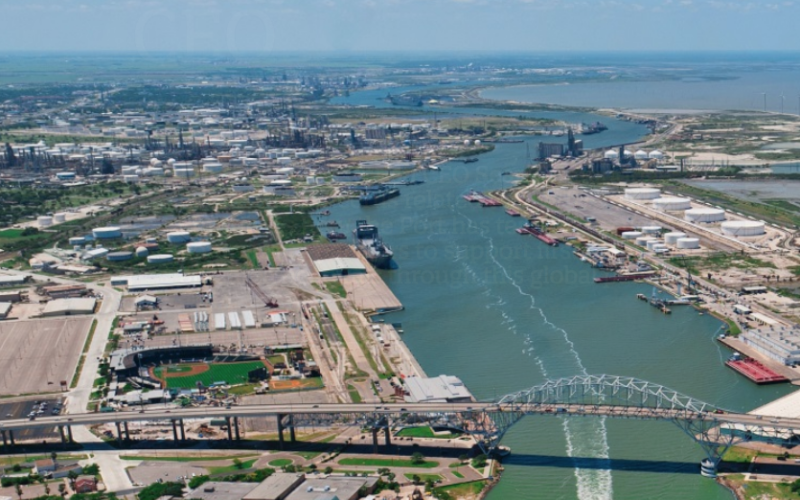(CORPUS CHRISTI, Texas) — The Port of Corpus Christi Authority and the Texas General Land Office (GLO) have executed a memorandum of understanding (MOU) stating their intention to co-develop a carbon dioxide (CO2) storage solution in the Coastal Bend in support of national decarbonization targets. Such a solution would involve infrastructure to transport and permanently store CO2 captured by various industrial target sources in the Port of Corpus Christi area.
Industry leaders recognize the detrimental impacts of excessive CO2 emissions. Partnering to capture and sequester these emissions has unmatched environmental benefits. A recent report from the American Petroleum Institute and the International Petroleum Industry Environmental Conservation Association and the International Association of Oil and Gas Producers calls on energy developers to adopt unified actions to help mitigate emissions that meet global carbon reduction goals. Specifically, this report recommends immediate action to reduce carbon emissions by investing into the development of infrastructure to capture and permanently store carbon.

“Our modern society relies on Texas’ rich natural resources for a variety of products that impact countless aspects of our daily lives,” said Texas Land Commissioner George P. Bush. “Utilizing new, innovative carbon storage methods is a critical step in demonstrating that energy development and environmental stewardship are not mutually exclusive. This partnership will ensure that Texas energy developers continue to responsibly utilize resources for future generations, as well as provide good-paying jobs, and abundant and affordable energy. We are excited to establish this partnership with the Port of Corpus Christi and look forward to its future success.”
The GLO has already displayed strong leadership in this area, most recently issuing a request for proposals from entities interested in constructing carbon storage infrastructure on GLO lands in Jefferson County, Texas.
“The Port of Corpus Christi is uniquely suited geographically and commercially to become the nation’s premier hub for carbon management capture and storage,” said Jeff Pollack, chief strategy and sustainability officer for the Port of Corpus Christi. “We have a high density of industrial CO2 target sources, a robust network of existing pipeline infrastructure, and we own a full transect of land from our customers’ fence lines out to GLO waters in the Gulf of Mexico.”
Academics from the University of Texas at Austin have mapped the geology of the Texas Gulf Coast and determined this region is ideal for injection and storage of pressurized CO2. With today’s announcement, the GLO and the Port of Corpus Christi have identified the Texas Coastal Bend region as the next focal point for developing a scalable carbon management solution.
“The energy transition is a strategic focus in hitting both commercial and environmental targets for the Port of Corpus Christi,” said Sean Strawbridge, chief executive officer for the Port of Corpus Christi. “We are sending a clear message to the American people, to our industry partners, and to the global energy marketplace that the state of Texas and the Port of Corpus Christi intend to establish a large scale CCS management hub and we thank Texas Land Commissioner Bush and his staff for their aligned leadership and commitment to achieving this goal.”
– Port of Corpus Christi Authority

